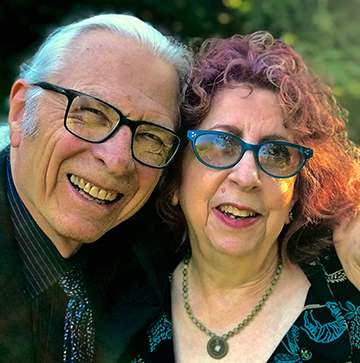The Unfettered Critic – February 2016
Remember the slogan, “Don’t trust anybody over 30?” It was a centerpiece of the “generation gap,” that sprang up in the 1960s.
Well, a variant of that slogan has come back to haunt us: “Don’t trust anyone under 30.” And we’re hearing it, surprisingly, from music fans.
In the ‘50s, listeners, young and old alike, approved of mainstream music. It came mainly from big bands or smaller groups featuring great singers: Frank Sinatra, Peggy Lee, Nat “King” Cole. Then the music altered as early rock ‘n’ roll drew younger ears—think Elvis and Little Richard. Parents were horrified, but not for long. The innovative trend quickly diminished, replaced by music with less “threatening” singers: Frankie Avalon, Fabian, Bobby Rydell. Even Elvis relaxed into Christmas tunes and Las Vegas openings. Promoters of the harder sounds retreated, while disappointed rockers dreamed of something wilder.
Then the British Invasion landed—and their dreams came true. The Beatles, the Stones, The Kinks, with their amplified volume and unruly hair, thrilled kids and frightened parents. The press dubbed the split “the generation gap.” All was well, as fans sincerely sang along: “Hope I die before I get old.”
Corporate record executives saw fortune in the wind and spread their contractual wings. They recorded young talent: Bob Dylan, Janis Joplin, Jimi Hendrix. But the execs also recalled that a portion of the public had accepted the less authentic Fabian. So they turned out stylized—and profitable—recordings by manufactured “bands,” from The Archies in the ‘60s to One Direction in the 2010s. These imitators don’t have to play their instruments; studio musicians do it for them. These vocalists don’t have to sing in tune; recording techniques fix flaws flawlessly. Long time listeners of “real” music notice—and turn away. Some follow only their favorite artists, or talent that sounds like their favorite artists, and reject newer music just because it’s “new.”
And sometimes they’re blatantly wrong for doing so.
We bring this up because a friend recently said: “I sampled about a minute each of ‘The Top Five Songs of 2015.’ A minute of each was all I could stand.” Another concurred, “Am I the only person in the world who doesn’t know who Adele is?” The conversation soon revealed that they don’t want to know.
That’s unfortunate. While we sympathize with our friends, we note that they’re stuck in time. A number of genuinely great young musicians deserve our attention. The above mentioned Adele, for instance. She’s a throwback to the soulful sounds that the deniers cling to. Adele Laurie Blue Adkins was born in London in 1988. Calling herself simply “Adele,” she won an Oscar, a Grammy, and a Golden Globe for the title song to the 2015 James Bond flick, Skyfall. Her current album, “25,” was released in November, and within days it commanded forty-eight percent of all music sales in the world—in spite of those who dismiss her the way critics dismissed the early Beatles. Yes, “25” is an instant best seller, but that doesn’t mean it’s a corporate, artificial product—Adele is an artist who can excel in front of a sophisticated audience without a microphone or sound altering amplification. Her vocals reveal elements of Etta James and Ella Fitzgerald. Just check out her latest single, titled “Hello.” You’ll understand. We predict that she’s a likely recipient at a future Kennedy Center Honors ceremony. Sure, Adele sings a little more like Barbara Streisand than Janis Joplin, but that ain’t bad. Besides, she’s from London, which makes her a part of the British Invasion.
She just arrived a little late.
 Paula and Terry identify as writers, with an ever-increasing number of published works to support the supposition. They live a primarily pastoral life in the enchanted town of Jacksonville.
Paula and Terry identify as writers, with an ever-increasing number of published works to support the supposition. They live a primarily pastoral life in the enchanted town of Jacksonville.